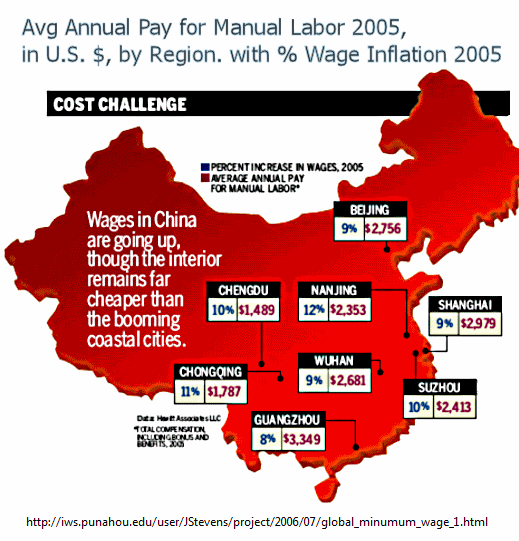Cross posted from The Stars Hollow Gazette
Writing for his New York Times blog, Conscience of a Liberal, Nobel Prize winning economics professor Paul Krugman makes two salient observation about President Barack Obama’s proposal to raise the minimum wage from the current $7.25 per hour to $9.00 per hour indexed to inflation. His first observation is the political “trap” for Republicans leaders who are opposed, even though a vast majority of voters support a wage increase (pdf) and that includes a string majority of Republican women but not men. Prof Krugman notes that while Republicans want you to believe that they are concerned workers might lose their jobs, he gives two examples of why this faux sincerity “won’t wash”:
1. The truth is that top Republicans have so little regard for ordinary workers that they can’t even manage to pretend otherwise. Case in point: on the last Labor Day, Eric Cantor declared,
“Today, we celebrate those who have taken a risk, worked hard, built a business and earned their own success”.
Yep: even on Labor Day, Cantor had nothing positive to say about workers, just praise for their bosses.
2. Consider a working couple with two children, earning the current minimum wage. How much federal income tax do they pay? If I’m doing the math right, the answer is, none – they get a refund. (They pay plenty of payroll taxes, sales taxes, etc., but that isn’t supposed to count). In the minds of Republicans, this makes them lucky duckies, members of the 47 percent, part of what’s wrong with America. The GOP just can’t credibly claim to suddenly be deeply concerned about their job prospects.
Prof. Krugman’s second observation is about the economics of raising the minimum wage:
First, as John Schmitt (pdf) documents at length, there just isn’t any evidence that raising the minimum wage near current levels would reduce employment. And this is a really solid result, because there have been a lot of studies. We can argue about exactly why the simple Econ 101 story doesn’t seem to work, but it clearly doesn’t – which means that the supposed cost in terms of employment from seeking to raise low-wage workers’ earnings is a myth.
Second – and this is news to me – the usual notion that minimum wages and the Earned Income Tax Credit are competing ways to help low-wage workers is wrong. On the contrary, raising the minimum wage is a way to make the EITC work better, ensuring that its benefits go to workers rather than getting shared with employers. This actually is Econ 101, but done right: given a second-best world in which you use imperfect tools to help deserving workers, two tools together can produce a better outcome than either one on its own.
As usual, if you want comprehensive, in depth discussion without the political talking points and invective, at the same time presenting both sides, Chris Hayes and his guests on Up with Chris Hayes this past Saturday provided just that. Joining Chris to discuss the president’s proposal to raise the minimum wage were by Arindrajit Dube, assistant professor of economics at University of Massachusetts-Amherst; Lew Prince, owner of Vintage Vinyl, Inc. a small business in St. Louis, Missouri; Jennifer Sevilla Korn, executive director of the Hispanic Leadership Network; and Tsedeye Geeresslasse, staff attorney of the National Employment Law Project.
Republicans and business groups have lined up in opposition to a minimum wage increase, and in doing so, they’ve repeated a talking point that has been common in Washington for decades: that an increase in the minimum wage would lead to reductions in employment. As it turns out, there’s a growing body of empirical evidence that indicates that minimum wage increases, within a certain range, have no negative impact on employment, and may actually boost worker productivity and consumer demand, providing a much-needed stimulus to the economy.


 Archival posting of One America Comittee blog
Archival posting of One America Comittee blog There are two sides to public funding of tertiary education. One is education as a requirement for career opportunities. To the extent that education is required for entry into “good” careers, then our American ideals demand public funding of those without the means to go proceed with tertiary education on their own. Otherwise higher education becomes a means of establishing a permanent class system, and ends the dream of a land of opportunity.
There are two sides to public funding of tertiary education. One is education as a requirement for career opportunities. To the extent that education is required for entry into “good” careers, then our American ideals demand public funding of those without the means to go proceed with tertiary education on their own. Otherwise higher education becomes a means of establishing a permanent class system, and ends the dream of a land of opportunity.